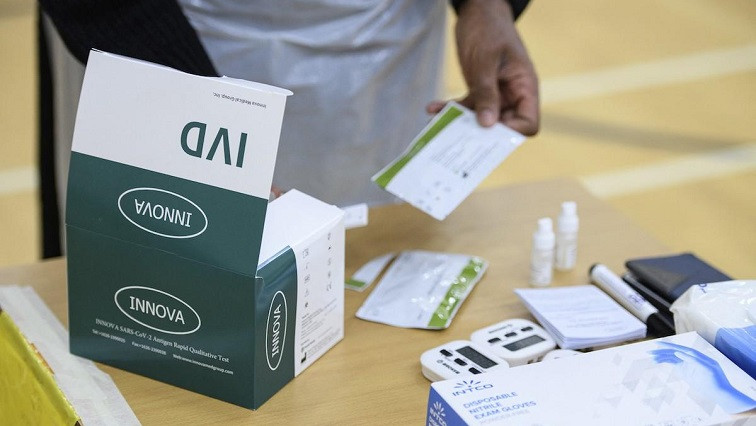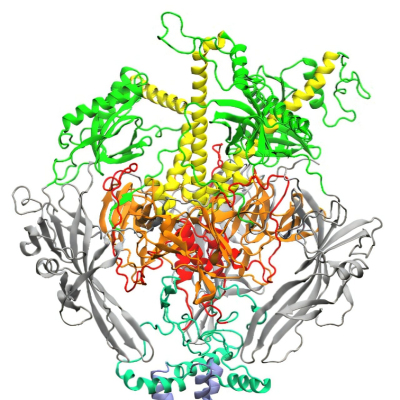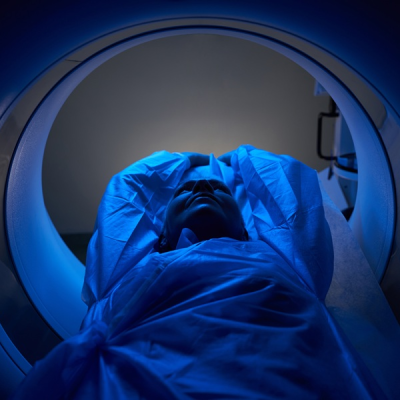Two entrepreneurs with no apparent background in healthcare have made £20m – and could make tens of millions more – after landing roles as middlemen between the UK government and a US firm that won £3.7bn of contracts to supply lateral flow tests.
Charles Palmer, whose background is in property, and Kim Thonger, a former shoe retailer, are the co-owners of Disruptive Nanotechnology, a business that had just £85 in the bank and debts of £3,592 at the end of 2019.
Accounts filed at Companies House last month show that the firm’s net assets soared to £20.5m during the year to 31 December 2020, including the first nine months of the coronavirus pandemic.
Disruptive Nanotechnology, trading as Tried&Tested, describes itself as the exclusive UK and EU distributor for rapid antigen and antibody tests made by California-based Innova Medical Group.
Palmer’s wife, Dr Rachel Limbrey, is the chief medical adviser at Tried&Tested, as well as working as a respiratory consultant at University Hospital Southampton.
Innova has won nine contracts worth a combined £3.7bn to provide tests, thanks in part to Operation Moonshot, the plan by Boris Johnson’s former adviser Dominic Cummings to roll out mass daily testing to reduce the need for strict Covid restrictions.
Innova’s chief executive, Daniel Elliott, has said that Disruptive Nanotechnology co-owner Thonger, who founded the company in 2016, “worked tirelessly” to help Innova win the first of its contracts.
Elliott said UK officials were “very surprised” by the quantities Innova could supply during discussions that took place in August 2020.
“I think that was the ‘A-ha!’ moment for them because they were tasked with what felt like an impossible task,” he said. “We had multiple calls within a 24-hour period. And they kept asking: can you really do this?”
A leak of confidential documents in September 2020 revealed the existence of Operation Moonshot, which a briefing paper described as the “only hope” of avoiding a second national lockdown.
Launching Moonshot shortly afterwards, Johnson described the plan as giving people the “freedom to mingle” and return to normal.
Within weeks, Innova had its first contract, for five shipments between September and early October worth £103.6m. As that one ended, a second, much bigger contract was signed for £496m. They did not go out to tender because of the “extreme urgency” and global demand, according to the contract notice. On 18 December, a third UK contract was published with Innova for £226m.
Disruptive Nanotechnology, based in Harrow, north-west London, reportedly receives “a few pennies” for each test supplied by Innova, an arrangement thought to be the reason for the £20m increase in its net assets, first reported by the Daily Mail.
But this year could prove even more lucrative. The combined value of Innova’s contracts for 2020, the year in which Disruptive Nanotechnology enjoyed its increase in assets, is £978.5m.
Innova has won more than £2.7bn of new testing contracts since then, while the company says it has also provided tests to the public sector, indicating it could be in line for an increase in assets of tens of millions of pounds this year, amid high demand due to the Omicron variant.
While the UK government has embraced Innova’s lateral flow tests, regulators in the company’s domestic market, the US, have not. The US Food and Drug Administration recalled Innova’s tests last year, citing concerns about their reliability.
Innova has said that the tests are effective.
Neither Thonger nor Palmer, who appear to have been instrumental in securing the supply of Innova’s tests, has a background in health or medicine.
Thonger worked in marketing and branding for a series of shoe companies, including Dr Martens and Dune, for more than 20 years. Palmer was a chartered surveyor who started his own property company.
Thonger founded the business in 2016 but it has never published full accounts due to its tiny size. It previously marketed a technology called LightCleanse that it claimed could be used to clean bacteria and viruses in the air and on surfaces, using nanoparticles of titanium dioxide.
It is unclear whether LightCleanse is still functioning but a mobile number listed on the website is no longer active.
Palmer became a director of Disruptive Nanotechnology in June 2020, shortly before it began talks with the government, and took a 50% stake in the company at some point during that year.
A spokesperson from Disruptive Nanotechnology said: “Disruptive Nanotechnology provides goods and services to hundreds of clients, across many sectors, including vital national infrastructure, oil and energy, education, finance, healthcare, manufacturing, events, sport, retail and media.
“Our terms of business with those clients are generally commercially sensitive, therefore we do not comment, except to say it is certain that the Guardian staff and readers benefit at some point during their day from those clients being open and active.
“Partly due to our efforts, LFTs [lateral flow tests] have been widely available in the UK since September 2020. We know, and are proud, that lives and livelihoods have been saved as a result.”
Read the original article on Guardian.







